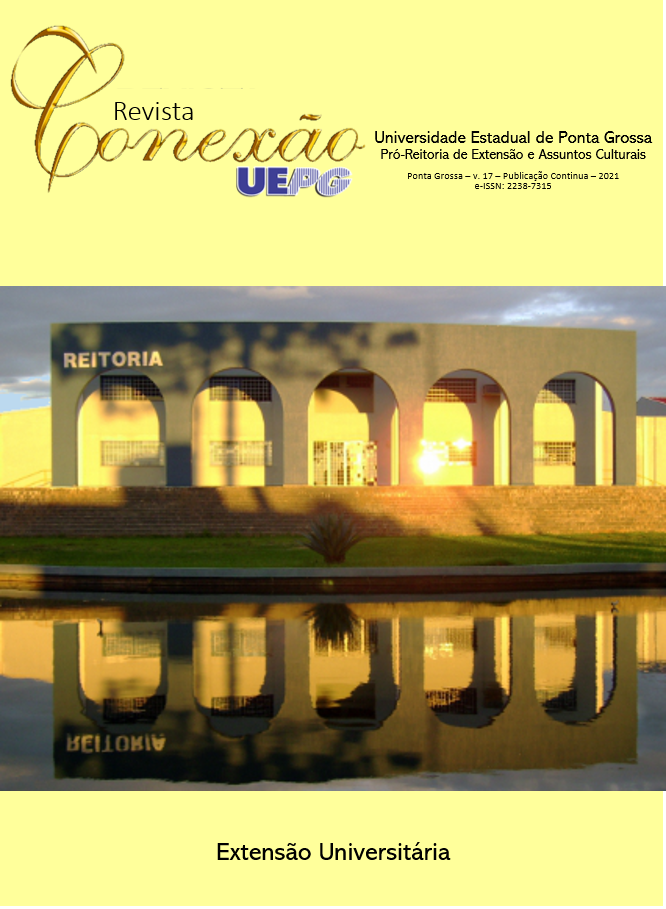PAPEL SEMENTE: ATIVIDADE PEDAGÓGICA AMBIENTAL COMO PRINCÍPIO EDUCATIVO EM UMA ESCOLA DO CAMPO
DOI:
https://doi.org/10.5212/Rev.Conexao.v.17.15305.004Resumo
O modo de vida pós-moderno tem trazido efeitos deletérios à saúde dos ecossistemas. Há muito tempo beiramos os limites saudáveis de produção e consumo, tornando necessárias propostas educativas que promovam cuidados com o meio ambiente nos mais diferentes contextos, principalmente no ambiente escolar. E quando a educação converge com a vida próxima ao meio, como é o caso do sujeito que vive no campo, favorece a realização de atividades das boas práticas de cuidado com a natureza. Sendo assim, este trabalho apresenta um relato de experiência de uma atividade que visou a produção de “Papel Semente” por alunos da educação básica de uma escola pública do campo de Santana do Livramento/RS. A prática pedagógica aqui relatada teve como finalidade incentivar a reciclagem, o desenvolvimento sustentável e o protagonismo do jovem do campo, a partir da produção de papel reciclado em sala de aula. Pode-se concluir que, no transcorrer da atividade, os alunos foram sensibilizados quanto às questões ambientais e mostraram-se motivados com a proposta pedagógica de Educação Ambiental.
Downloads
Downloads
Publicado
Edição
Seção
Licença
a) Os autores mantêm os direitos autorais e concedem à revista o direito de primeira publicação, com o trabalho simultaneamente licenciado sob a Creative Commons Attribution License que permite o compartilhamento do trabalho com reconhecimento da sua autoria e publicação inicial nesta revista.
b) Ao submeter um artigo à Revista Conexão UEPG e tê-lo aprovado os autores concordam em ceder, sem remuneração, os seguintes direitos à Revista: os direitos de primeira publicação e a permissão para que a Revista redistribua esse artigo e seus metadados aos serviços de indexação e referência que seus editores julguem apropriados.
c) Os leitores são livres para transferir, imprimir e utilizar os artigos publicados na Revista, desde que haja sempre menção explícita ao(s) autor (es) e à Revista Conexão UEPG e que não haja qualquer alteração no trabalho original. Qualquer outro uso dos textos precisa ser aprovado pelo(s) autor (es) e pela Revista.

Este obra está licenciado com uma Licença Creative Commons Atribuição 4.0 Internacional.





